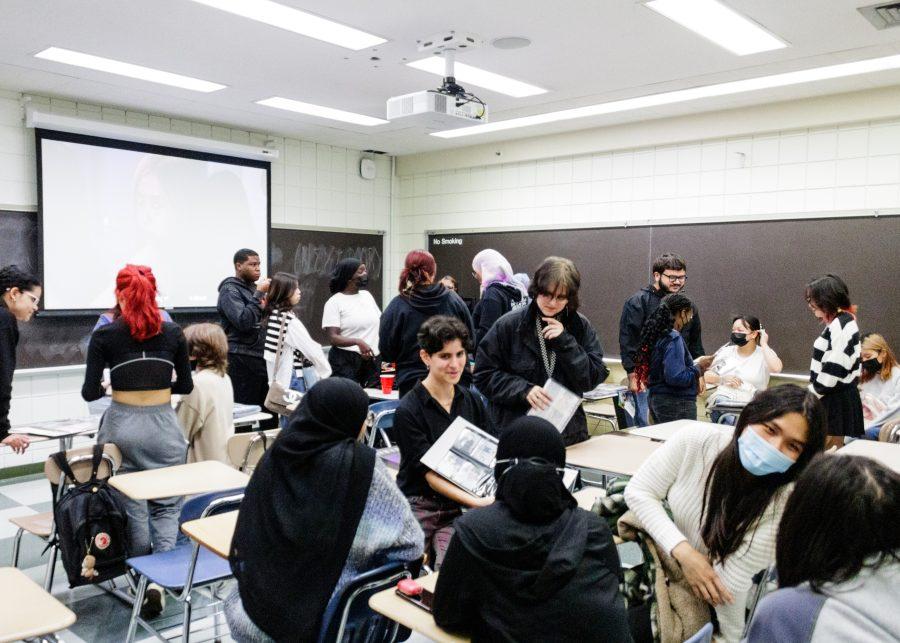Starting a new semester can be daunting. Everyone settles down at their own pace before making new connections and meeting new people. College students frequently face stress due to growing workloads, poor time management, new eating and sleeping routines, and balancing self-care on top of everything else. Many students report feeling stressed throughout their transition into college. Exam preparation, competition for admissions or internships, and attempting to grasp a lot of material in a short period are some stressful situations that college students face on a daily basis.
But how can someone manage these tasks while also networking and meeting new people? These hints might be helpful. Networking is highly personal. Depending on the person, some may benefit from connecting with peers through social media rather than in person.
For example, Ty Labat, a freshman at UMass Boston, said: “I made friends through my other friends, so it was easy for me. However, at the start of my semester here, I made friends in the dining hall by just sitting with random people and then adding them on social media later on.”
Social media helps with connecting classmates outside the classroom. Many options exist for young people to interact on these platforms. Students can use social media in various ways depending on their interests, communities, friends and families.
Posting on social media can also create awareness around important events happening around the world, as seen recently around the crisis in Iran. It is a way for people to connect over different topics and interests through messaging and group chats, such as the app Discord. Communicating with others while in college is crucial for self-growth and also crucial to prepare for the working and professional world.
Social interaction also influences academic success. A shy learner won’t express their opinions in class. Those with low self-confidence hold back on speaking their minds, which might prevent them from getting better grades. Socializing also shows how receptive one is to a wide range of issues. Interacting with new people from a variety of different backgrounds can help educate students on many different topics.
In an interview with Bethany Tuller, the Assistant Director of Student Activities & Leadership, she said: “going on the UMBinvolved website and checking all the clubs here, and getting in contact with those clubs can help students to get involved. They are also welcome to reach out to the student activities and leadership office, as well as start their clubs.” Students can email students activities and leadership at [email protected].
Making friends in class is challenging, but everyone needs people in their classes to ask about various course materials. Danielle McShea, a senior at UMass Boston, talked about what helped her during her time starting out at UMass Boston. She said: “joining organizations, attending events and putting yourself out there will be helpful. Even in classes, greet people next to you. It’s awkward initially, but you may eventually find your new best friend!”
There are many so opportunities to engage on campus, including employment, student media, club positions, professional groups, social sororities and fraternities, and honor societies. In addition, anyone can connect with mentors, advisors and lecturers, as well as a variety of other students. As corny as it may seem, everyone can find someone or something!
Getting involved on campus
Students gather at Wheatley Hall for the first K-pop Club meeting of the spring semester. Photo by Mary Bell / Contributor
About the Writer
Vansh Khokhani, Arts Writer

